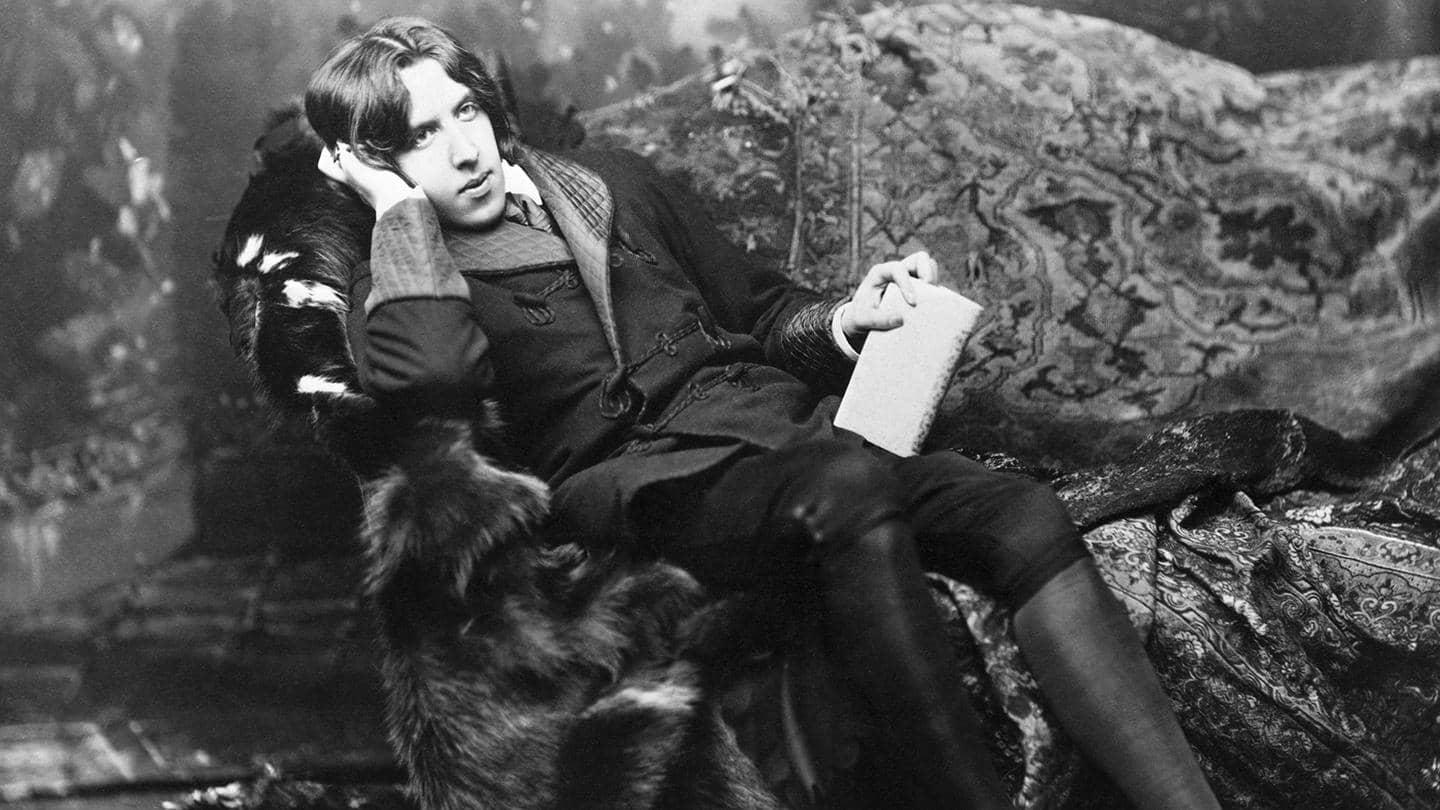
History
Ledger Legends: Oscar Wilde
In the second in our series in which we delve into the Barclays archives and examine the handwritten ledgers relating to famous historical figures, we look at the accounts of renowned Irish playwright, Oscar Wilde – which have lain undiscovered for nearly 120 years.
Collections of porcelain tea sets and the regalia of Freemasonry were amongst the luxuries indulged in by Oscar Wilde during his student days, his 19th century banking records reveal.
While studying ‘Greats’ – a course spanning classics and ancient philosophy – at the University of Oxford’s prestigious Magdalen College between 1874 and 1878, Wilde banked with Parsons, Thomson & Co.
The bank merged with Barclays in 1900, meaning that the details of his spending lay undiscovered in the extensive Barclays Archives in Manchester, England for nearly 120 years. They were not revealed until Barclays Archivist Nicholas Webb uncovered them August 2017.
“I had been reading about Wilde in my own time,” explains Webb. “I had thought there was a good chance of Wilde having an account at Oxford Old Bank, since this was just a stroll along the high street from Magdalen College where he was in rooms – so I looked him up in the Barclays Group Archives. My reaction was: ‘Wow! He’s here.’”

Oscar Wilde's banking ledger
Oscar Wilde's debts
With an abundance of debts to businesses including his Oxford tailor ‘Muir’, jeweller ‘Osmond’ and ‘Spiers’ Emporium’, Wilde’s records show his inclination to overspend on extravagant buys. Indulging in china, ornaments, playing cards, coffee cups, a decanter, and a “richly gilt” breakfast service, Wilde was a part of the late nineteenth century’s aesthetic movement which emphasised ‘art for art’s sake’ – championing the beauty of art and design over moral and practical values.
Practicalities did eventually catch up with him, however, when he was taken to the Vice-Chancellor’s court for unpaid bills. Records show a sum of £9. 6s. 8d. paid to Spiers on 5 February 1875, presumably to settle part of his account. Wilde famously remarked in his room in Magdalen College, Oxford: “I find it harder and harder every day to live up to my blue china.”
Wilde’s involvement in Freemasonry can also be discerned from two separate entries made to ‘Bodley’ in 1875 of £10 in February and £30 in March, which Webb believes would have been for “fees and regalia.”
Freemasonry
John Edward Courtenay Bodley, an Oxford undergraduate involved with Masonic administrative activities, is believed to have introduced Wilde to Freemasonry. Because he was underage, Wilde was initiated by special dispensation in February 1875. He made two further payments to Masonic university lodges in early 1876 – records show a sum of £3. 3s paid to ‘Apollo’ in January and £1. 10s to ‘Churchill L[odge]’ in March. However, Wilde was expelled from the fraternal organisation after four years due to non-payment of fees.
Another frequent payment, from 1877 onwards, is to St Stephen’s Club, which Webb believes was the London club opened in 1870 with Benjamin Disraeli – then between his two periods as Prime Minister – as one of its founding members.
Despite his tendency to fall into debt, Wilde’s accounts record a frequent but irregular stream of income, likely from his parents in Dublin – Lady Jane Wilde and Sir William Robert Wills Wilde. Records show he received a total sum of £1,564 across his four years at Oxford, including an inheritance from his father who passed away in 1876. In addition, Wilde had a half-scholarship at Magdalen College, known as a ‘demyship’ from which he received £95 annually.
Lord Alfred Douglas
Delving deeper into the archives, Webb later found another highly relevant ledger. “I was amazed to find a brief account in the ledgers for Wilde’s fateful lover ‘Bosie’ – Lord Alfred Douglas – who entered Magdalen 11 years after Wilde had left.”
Wilde graduated from Oxford in November 1878 with a double first degree, and won the Newdigate Prize for his poem Ravenna before moving to London to pursue what would become a legendary literary career.
At the time, Wilde wrote to a friend: “The dons are ‘astonied’ beyond words – the Bad Boy doing so well in the end!”